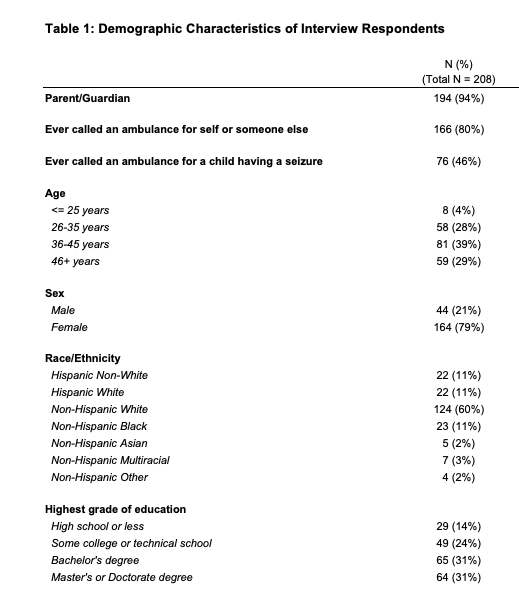Emergency Medicine: All Areas
Emergency Medicine 11
483 - Concerns Among the Black Community Regarding a Pediatric Prehospital-Based Exception from Informed Consent Study
Publication Number: 483.31

Manish I. Shah, MD, MS (he/him/his)
Professor
Baylor College of Medicine / Texas Children's Hospital
Houston, Texas, United States
Presenting Author(s)
Background:
Barriers exist in pediatric Emergency Medical Services (EMS) research, including obtaining consent from parents. Exception From Informed Consent (EFIC) mitigates the consent barrier by allowing for the study of life-threatening conditions. Investigators must seek community feedback before study approval, and community consultation allows communities to express concerns before a study proceeds with enrollment. In a companion survey, we found that non-Hispanic Blacks were less likely to support study participation than non-Hispanic Whites.
Objective:
Based on separate interview responses, we sought to understand the specific concerns of the Black community about the Pediatric Dose Optimization for Seizures in EMS (PediDOSE) study.
Design/Methods:
This was a qualitative study using semi-structured interviews conducted in 20 urban U.S. cities where PediDOSE is enrolling. PediDOSE measures the effectiveness and safety of age-based, midazolam doses for managing pediatric seizures. Research staff recruited English and Spanish-speaking volunteers to participate in interviews until reaching thematic saturation. Seven investigators independently analyzed interview transcripts and applied grounded theory using constant comparison to develop codes and themes. The individual responses were then compared on the basis of race to identify the concerns that Black interviewees discussed.
Results:
Of 208 interviewees, 61 (29%) self-identified their race as non-White, with 23 (11%) Black, 5 (2%) Asian, 7 (3%) multiple, and 4 (2%) other participants. For ethnicity, 44 (21%) identified as Hispanic, half of whom were non-White. Three major themes emerged among Black interviewees. One was respect for persons, characterized by people’s desire to establish trust with them, provide timely information about the study, and offer them an opportunity to ask questions. Autonomy in decision making was also valued, especially having agency to make choices for their children while acknowledging that parents may not have the capacity to do so in a stressful situation. Finally interviewees expressed concerns about potential negative outcomes due to a medication dosing error or adverse reaction. Black community consultation interview participants for PediDOSE shared the importance of demonstrating respect for persons, promoting autonomy, and addressing concerns about possible negative outcomes. Future EFIC studies may benefit from proactively involving the Black community by incorporating their feedback and addressing these concerns during the study design phase.
Conclusion(s): 
.png)
